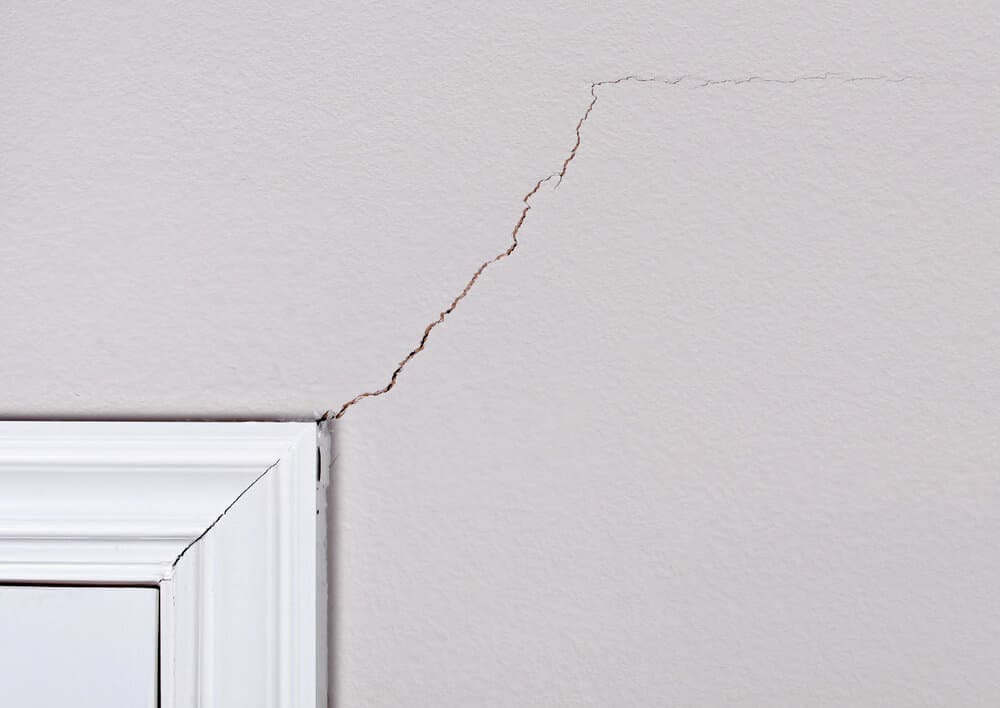
Most homeowners don’t budget foundation repairs into their annual expenditures, thinking concrete isn’t as susceptible to the environment as wood siding or the roof. The truth is that while concrete may be a harder material than wood, the elements — specifically, water — can do some serious damage to a foundation.
You might think about checking the roof and gutters once a year, but you probably don’t have a schedule to annually check your home’s foundation and basement or crawl space for water damage. While there are things only a professional basement specialist may notice — such as mold hiding in a location you wouldn’t think to look — there are some things a homeowner can look for.
If you notice any of the following, it’s time to look into repairs: cracks in the foundation, basement or crawl space; bowing walls; damp spots on the concrete; mold; and flooding. In other areas of the house, look for sagging floors; long cracks in ceilings; doors and windows that don’t open and close properly; cracked windows; doors with gaps around the jambs; a sagging porch; a leaning chimney; and/or the house itself being unlevel.
Leaving damage alone is the worst thing you can do. Problems might start small, such as one or two hairline cracks, but that isn’t where the problems will end. The cracks likely will get bigger and more water will enter the home, causing additional issues. Even if the cracks don’t widen, the fact there are cracks at all indicates your foundation is not waterproof. This means future problems — and the bigger the problem, the more costly the repairs.
Keeping your basement dry is important not only for the home’s structural integrity but also for your well-being and any other residents. Most foundation damage comes from the pressure exerted when soil absorbs rain or snowmelt and expands. This expansion pushes against the concrete, which may result in cracks. Water also flows through the pores in concrete, potentially widening any existing cracks. With moisture, comes mold, and the mold found in basements is toxic for anyone with a compromised immune system, such as children, the elderly, and anyone with asthma or other lung conditions. Mold also can contribute to skin rashes.
If you choose to postpone repairs or not make any repairs at all and then try to sell your home, you’re in for a difficult time. First, your home may not pass inspection. Lending institutions require a home inspection as part of the mortgage process. If your potential buyer is taking out a mortgage, foundation damage may sink the sale. For buyers willing to pay upfront, a foundation that needs repairs will have them making offers thousands of dollars less than the amount for which you want to sell your house. Fixing the foundation will cost the buyer time and money, so to make the purchase profitable for a buyer, the asking price must go down. A solid foundation increases the chances your home will sell.
Repairing a foundation is best left to the pros. Even if you’re an all-around handyperson, concrete repair on the foundation and basement is not like filling a crack or two in a sidewalk with concrete mix from your local home improvement store. Since the foundation is what your home rests on, any repairs must be done right the first time. A waterproofing specialist can also assist you with figuring out what you need to do beyond repairs to keep the foundation as dry as possible.
Acculevel has been helping homeowners in the Midwest for decades. Our staff has years of experience under their belts in basement, foundation, and crawl space repair and waterproofing. We also are certified mold remediators, so we can handle toxic mold removal without risking your family’s health. We offer free in-home estimates and believe in being honest and upfront about what needs to be done. If you’ve spotted a potential problem with your house’s foundation, give us a call at (866) 669-3349 or email office@acculevel.com to schedule an appointment for us to take a look.